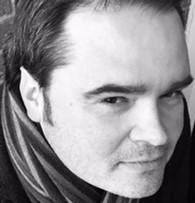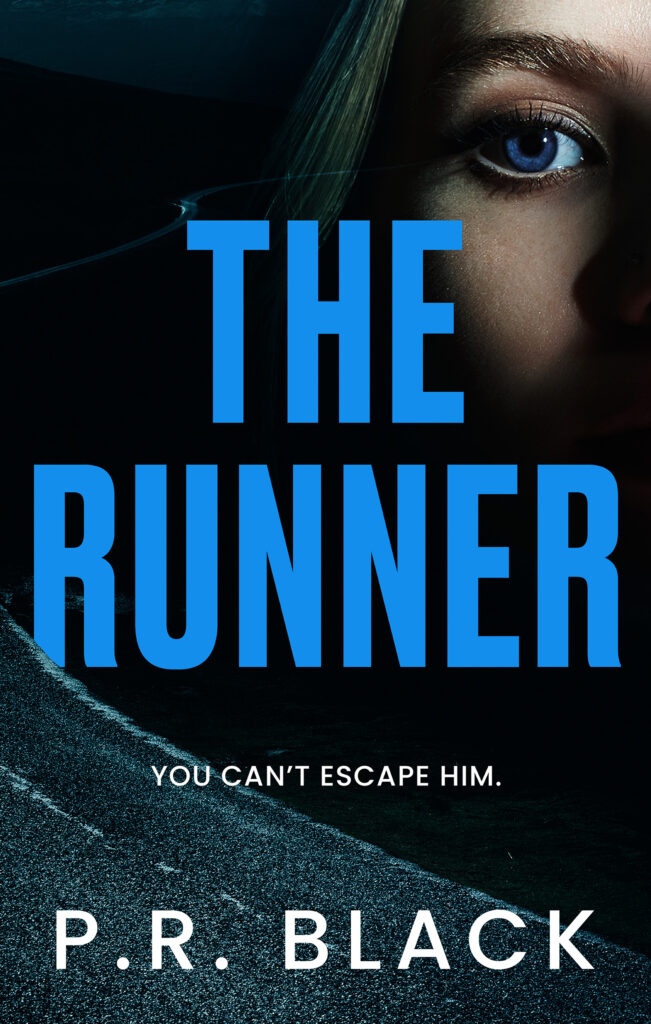

Are there any books or authors that inspired you to become a writer?
Loads – I couldn’t list them all.
I was a Doctor Who fan when I was a kid (and I’m just as big a fan as an adult). Back then, you either hired things out of the video shop, recorded them off the TV, or you had to make do with watching something once, as live, and then never again.
So, as a Doctor Who fan, you had about 14 episodes per year, and if you wanted to experience any of the older stories with the previous Doctors, your only way to do so was to read the Target novelisations.
Most of these were penned by Terrance Dicks, who was a former script editor on the show and had a hand in shaping the show’s mythology. In his books, the series’ sometimes legendary budget limitations disappeared, and the stories were bigger in your imagination than they had ever been on the small screen.
In reading these, mostly getting them out of the public library and the school library, this is where I became a book addict. I enjoyed comics and story anthologies, particularly Sherlock Holmes, and I had written a lot of stories by this point, but with the Doctor Who novels I became hooked on books. This is when I became sure that I wanted to write them myself. One of my top ambitions is still to write one of those novelisations (they continue to this day, as the show does).
Another big influence is Stephen King. Nothing unusual in that, really. But I read Salem’s Lot when I was 12 – same age as Mark Petrie – and it was terrifying. This took vampires away from the notion of a man with a cape and a strange hairline in a Meat Loaf promo video in eastern Europe, and placed them in your basement, folded inside an old fridge dumped in a lane, sat in your kitchen in the dark, or hovering outside your bedroom window. If you thought the TV mini-series with David Soul and James Mason was scary, this is nothing compared to the book.
Do you have any suggestions to help me become a better writer? If so, what are they?
Just keep doing it. Outside a celebrity sideline, I don’t think people bumble along into writing. It’s not really a job – it’s a vocation as much as a pastime, a compulsion. Or a delusion. I get grumpy if I don’t write. Try to do it every day, that’s all I can recommend. “Be lucky” isn’t advice.
The short story writer Wendy Erskine was asked about this recently; she works as a teacher and so she has limited time to dedicate to her craft. But she said: if all you can manage is five minutes on your tea break, then use that five minutes. Write a couple of hundred words. Because 200 words in five minutes is better than no words at all.
Similarly, a writing acquaintance once said something like: “Beware you don’t become that very sad thing – the writer who does not write.”
As for “better”, that’s unanswerable, but I’d say that a key skill is in editing your own material. Knowing what line doesn’t sound right, knowing what line (or paragraph; or entire chapter, or entire section of the book) needs to be cut altogether. This is as much of a skill as putting the words down on the page in the first place. I’m not sure who coined the phrase, “writing is rewriting” – it may have been Paul Abbott – but that’s another good one to remember.
Do you play music while you write — and, if so, what’s your favourite?
I do, and I tend to put on ambient music. As I get older I veer towards “mood music” generally. I wouldn’t say I’m too old to rock n’ roll but I wouldn’t trust my knees to do a powerslide nowadays, let’s put it that way!
For writing, I listen to Aphex Twin, Jonn Serrie, Terry Riley, Manuel Gottsching/Ashra, good old Mike Oldfield, Brian and Roger Eno and The Orb. My brain locks into these weird, idiosyncratic pieces of music, and it helps the process.
I am sure my family think I have lost my mind; it gets absurdly minimal at times, bleeps and pings. Soon it’ll devolve into a single note, or the odd tone. One that irritates dogs. On pan pipes.
Have you listened to any audiobooks? Which did you enjoy the most?
I listen to audiobooks every day, when I head out for a walk on my lunch break at work (yes, I know, I should probably use the time to write, as per the advice above). There have been some crackers that I didn’t want to end: Stephen Fry narrating The Hitch-Hiker’s Guide To The Galaxy is a classic, and I loved Richard E Grant’s reading of Iris Murdoch’s The Sea, The Sea. The multi-cast version of Craig Brown’s Beatles book, One, Two, Three, Four, was another beauty, I felt bereft when it was over. Possibly the best is Anna Massey’s performance of Daphne du Maurier’s Rebecca, though – flawless and definitive.
How do you develop your plot and characters?
There are some books that have been living in my head for years. Everything sort of shakes out and develops over time, so I get to finesse the plot, characters, settings, even scenes. The tragedy is – I may never get to write many of them, and they get shoved aside for more critical projects.
How do you process and deal with negative book reviews?
…I wouldn’t say you should ignore them, exactly, but be prepared to shrug them off. No matter how sarcastic, or condescending, or downright nasty they get. In fact, the ones that have hurt me the most have been the ones where the reviewer made some excellent points.
But you do have to develop a thick skin, and – very important, this – never, ever respond. You’ll look petulant, it puts you in the position of weakness, and, I’m sorry to say, it gives some questionable people exactly what they were looking for.
Some folks might give a bad review because they care about literature. Some may feel they are on a quest to stop people spending money on something they personally disliked. Some are merely being honest. But I have read some reviews that seemed to be a manifestation of aberrant psychology. Where people were openly projecting (“Good lord… I didn’t write anything about that!… Did I?”). And I’ve read reviews where people surely wrote them simply to cause pain and upset. Those are to be pitied, really.
I remember one reviewer left a one-star criticism of my book that was so scathing, and in such detail, that I seriously considered never writing for publication again. It turned out, they had their own book released the same week as mine. Go figure.
Sadly, bad reviews can hurt a book’s sales – especially damaging when you’re at the modest level I currently operate at. It’s horrible to be bouncing along with four- or five-star reviews, building a bit of momentum, then in comes your first one-star. But no matter how good or successful you become you’re going to get bad reviews. It comes with the territory.
Bad reviewers might have a point. They might help you correct flaws in your own writing; or consider aspects of it that you hadn’t thought of before. They might simply be terrible people. You’ve got to take it on the chin, whatever the case may be.
How important was professional editing to your book’s development?
All-important. Editors, when they’re working on a surface level to pick up things like typos or grammatical errors, are worth their weight in gold. When it comes to structural edits, or picking up flaws and discrepancies, they are worth twice that. Some of the editors I’ve worked with are phenomenal – the peregrine falcons of literature. They miss nothing. And thank God for that.
Some goal-line clearances on my own work still makes me cringe even now. One editor picked up a part of one story that didn’t make sense at all, at the absolute death in the editorial process. After that last piece of scrutiny, it was off to the printers. A lifesaver. The amount of times I’ve used the wrong names, or forgotten characters’ names, would probably shock you.
Incredibly, I even made a mistake in describing a bikini in my last book, and you’d think if I could get one detail about women’s clothing right, it would be that!
So, yes – a fresh pair of eyes can make all the difference. No-one’s MS comes out well without an editor. For anyone self-publishing out there, take this as fair warning…
How long have you been writing or when did you start?
As long as I’ve been able to write, really. At first it was comic strips, but I was frustrated by how long it took to put them together. Someone explained to me that you could condense a story into words, and I thought, I’ll try that. I’m still doing it.
How many books have you written? Which is your favourite?
Hmm. Published, six – there’s another one “in the chamber”, and my agent’s going to work on that soon. It’s a police procedural set in Glasgow.
In terms of books overall, at least double that. More if you consider book blogs, reviews, short stories… I told you it was a compulsion!
My favourite out of the books I’ve published so far is the one people didn’t quite take to – The Long Dark Road. I’m not sure why this was, I think it’s got the best storyline and the best characters. A mother looking for her lost 19-year-old daughter in a campus town. I liked so many parts to this: the fact that the main character is a woman in her fifties, and she takes absolutely no messing. Some people said they didn’t like the mother – that she was quite severe and extreme in how she finds out what happened. I thought, my god, extreme? She was commendably restrained! If my kid went missing I’d be running around like Rambo. Possibly even down to the sweatband and going “Huuuah!”
Of books I’ve written but not published… I wrote a long novel called Snarl, years ago now. I was in my twenties when I started it! It’s a horror comedy about a kaiju-type monster attacking London. “The Thick Of It Meets Shaun Of The Dead” was the elevator pitch I used at the time. I thought I had a winner on my hands. I loved it, but it seems no-one else did. We all know about “kill your darlings”, but no-one warns you about other people killing your darlings for you. The Beast is still out there… somewhere!
How many hours a day do you write?
Not enough. I have to steal the time. In fact, I should be writing now…
P.R. Black is the author of six thrillers, including The Runner, The Beach House, The Family, The Winter House and The Long Dark Road.
His latest, The Hunted, is available now at all good retailers. It is also available as an audiobook.
He is the author of the ShortSharpShocks series.
A full selection of Pat’s work can be found here.